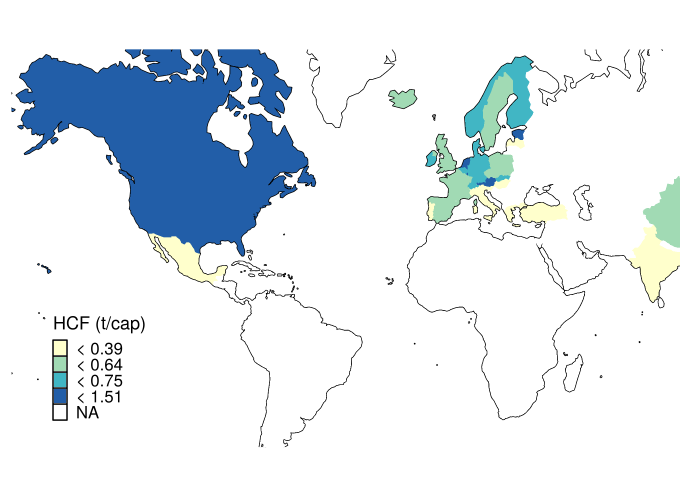International Comparison of Health Care Carbon Footprints
 CO2 Emissions (per capita) associated with Health Care in the OECD, China, and India.
CO2 Emissions (per capita) associated with Health Care in the OECD, China, and India.
International Comparison of Health Care Carbon Footprints
Abstract
Climate change confronts the health care sector with a dual challenge. Accumulating climate impacts are putting an increased burden on the service provision of already stressed health care systems in many regions of the world. At the same time, the Paris agreement requires rapid emission reductions in all sectors of the global economy to stay well below the 2 degree Celsius target. This study shows that in OECD countries, China, and India, health care on average accounts for 5% of the national CO2 footprint making the sector comparable in importance to the food sector. Some countries have seen reduced CO2 emissions related to health care despite growing expenditures since 2000, mirroring their economy wide emission trends. The average per capita health carbon footprint across the country sample in 2014 was 0.6 tCO2 , varying between 1.51 tCO2/cap in the US and 0.06 tCO2/cap India. A statistical analysis shows that the carbon intensity of the domestic energy system, the energy intensity of the domestic economy, and health care expenditure together explain half of the variance in per capita health carbon footprints. Our results indicate that important leverage points exist inside and outside the health sector. We discuss our findings in the context of the existing literature on the potentials and challenges of reducing GHG emissions in the health and energy sector.